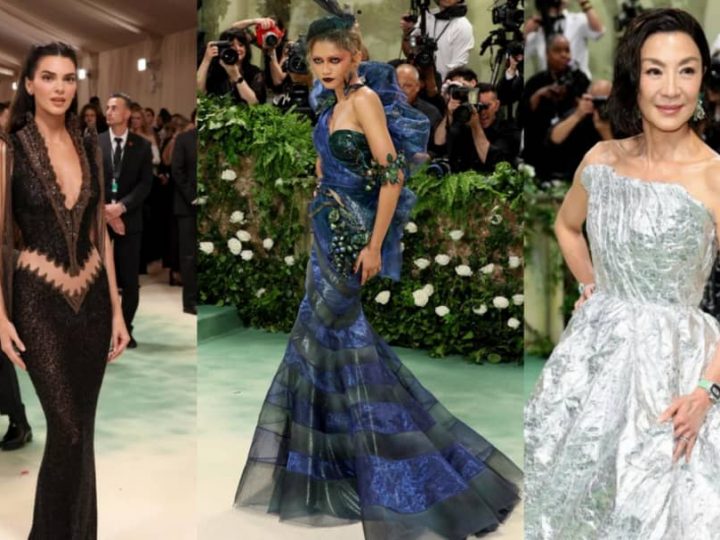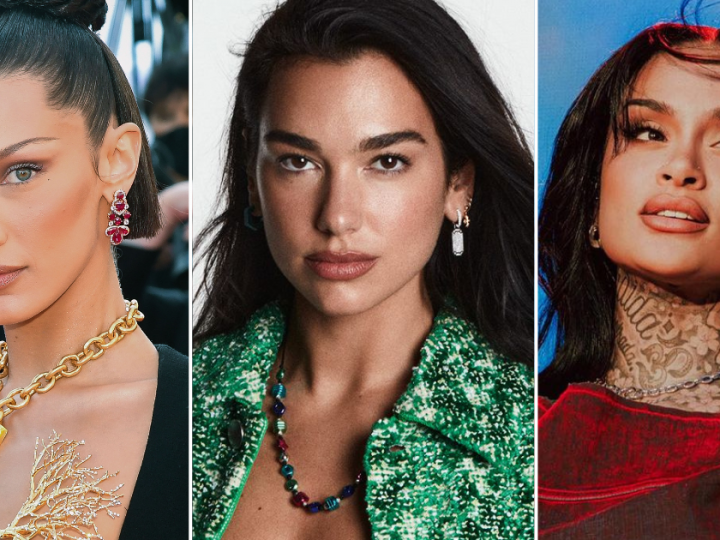How #Blockout2024 Reveals M’sian Celebrities’ Performative Activism For Palestine
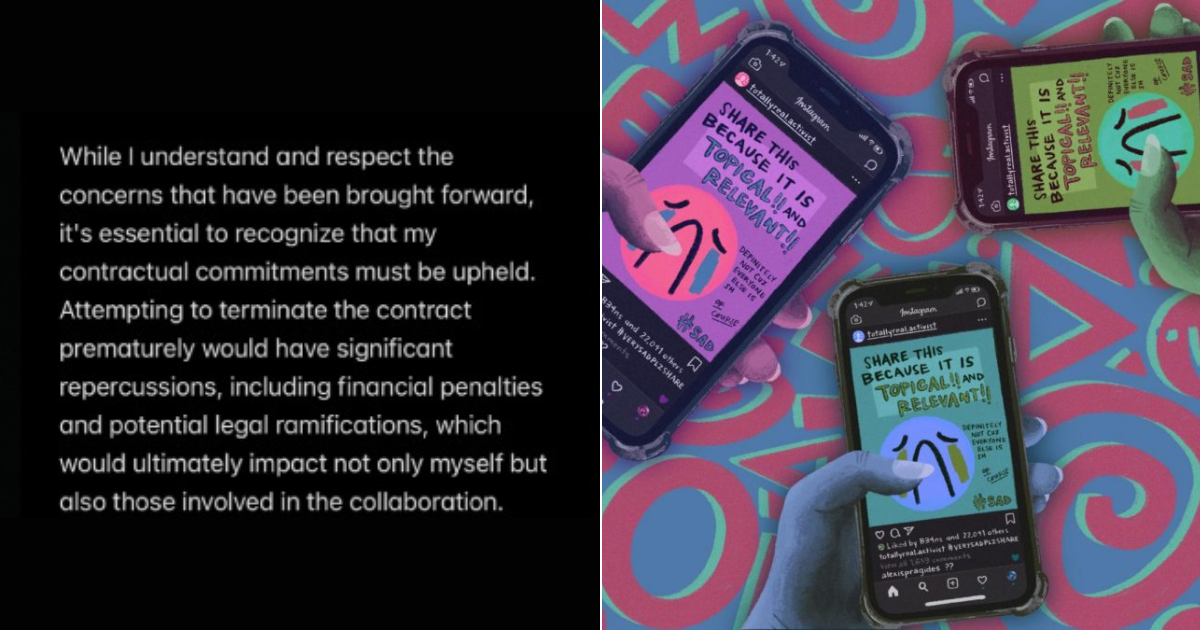 Thirsty for JUICE content? Quench your cravings on our Instagram, TikTok and WhatsApp
Thirsty for JUICE content? Quench your cravings on our Instagram, TikTok and WhatsApp
Disclaimer: The following article contains the writer’s personal opinion and does not necessarily reflect the position of JUICE. Readers’ discretion is advised.
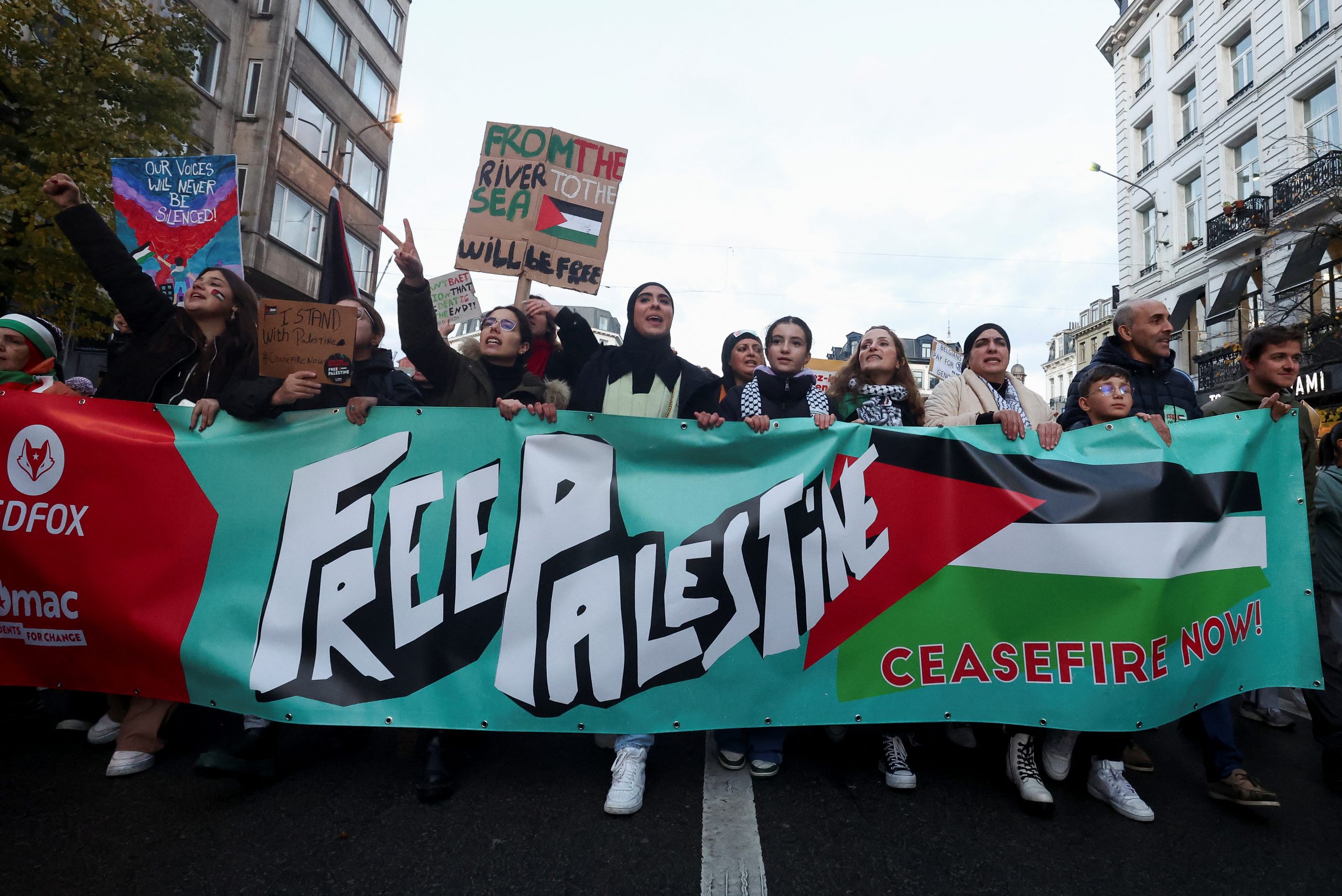
Earlier this week, a list of Malaysian artists and social media influencers who worked with brands that have been linked to the Gaza genocide went viral on various social media platforms, prompting the public to unfollow them as a form of boycott.
While many Malaysians supported the movement and blocked those on the list, others defended their favourite local celebrities and made various claims to deny their involvement with such brands.
One X user argued that these public figures should not be blacklisted because they do not cater to Zionists.
“Unpopular opinion: You guys are forgetting who the real enemies are, and that’s lame as f–k.
“The official #blockout2024 list given by @landpalestine involves celebrities with direct influence over Zionists and Western powers. Focus on these global artists that actually pander to their Zionist fans,” wrote one X user.
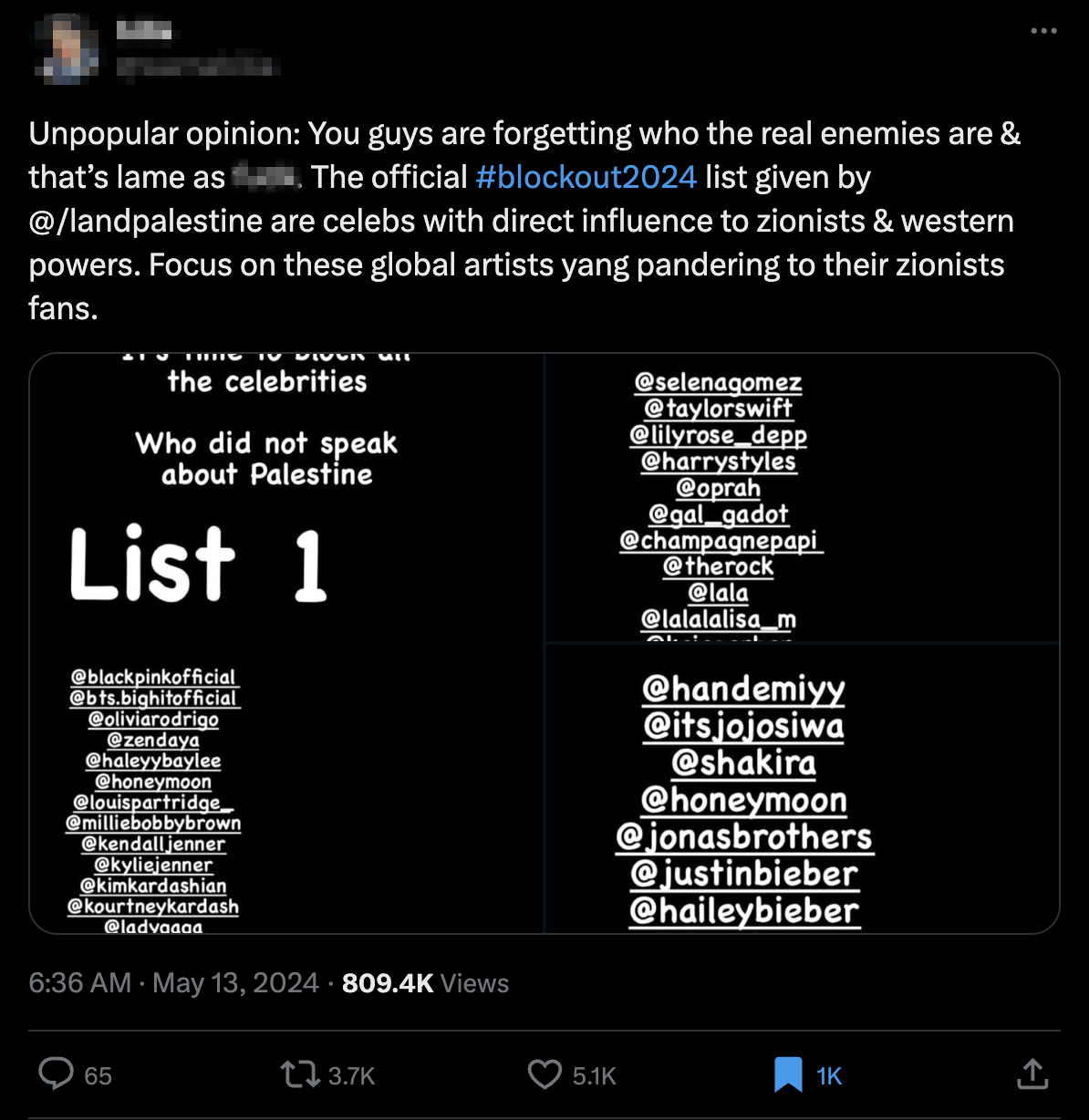
While we respect the user’s opinion, their argument does not reflect well on the values that these celebrities represent.
If they are truly opposed to the ongoing genocide, why are they taking jobs promoting brands that allegedly contribute to the genocide? In the end, they still pander to Zionists by promoting their products and services.
But here comes fans’ worst nightmare: Their favourites are being accused of performative activism
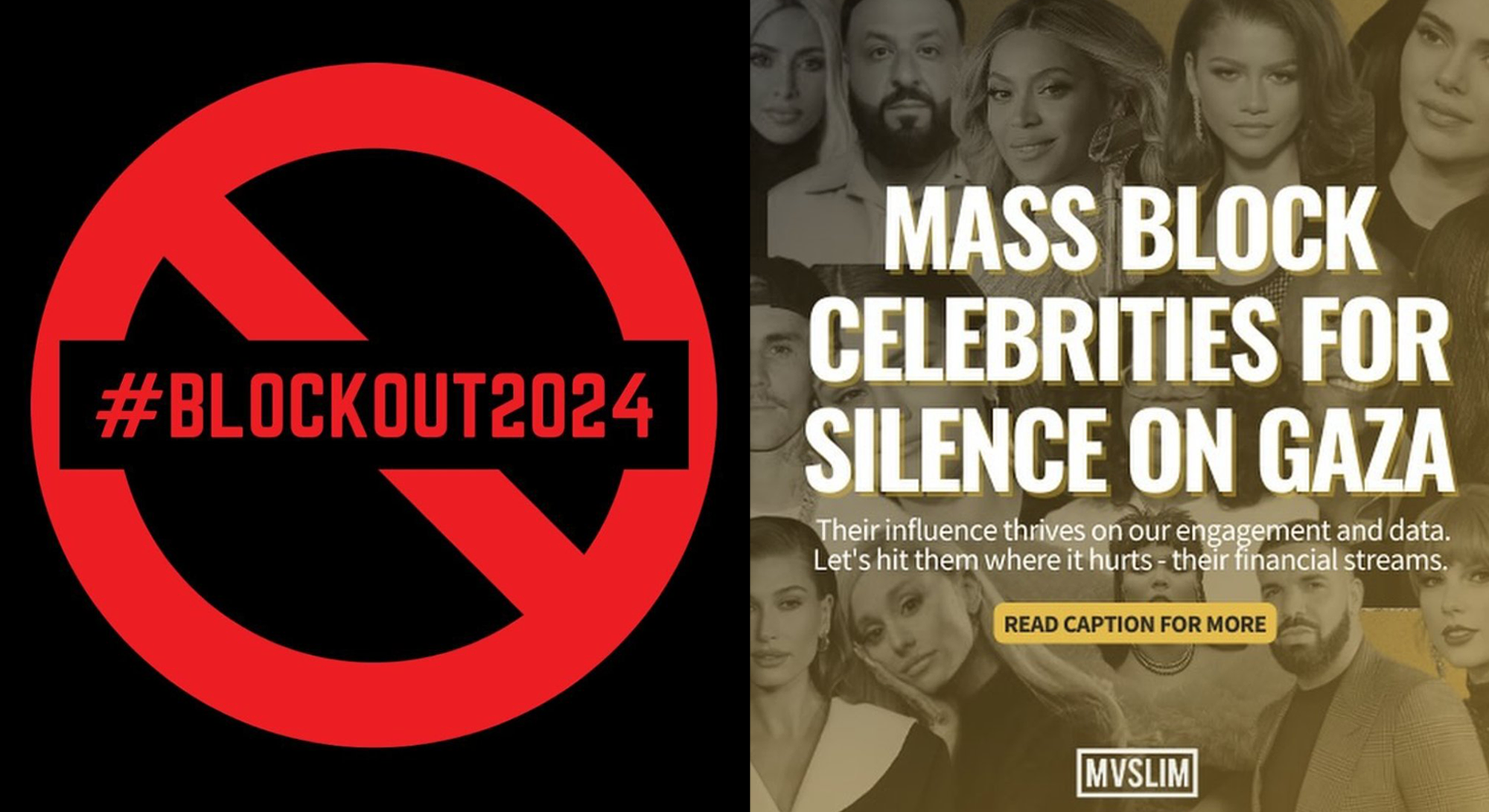
Following #blockout2024, several Malaysian celebrities issued statements to defend themselves from continuously losing followers online. Even so, these artists are receiving criticism because their statements are not strong enough to justify their actions.
In some of these statements, they revealed that they collaborated with pro-Israel brands long before the Gaza genocide began in October 2023, forcing them to promote their products on social media while the attack was happening.
“It’s important to clarify that my decision to collaborate with [pro-Israel] brands was made over a year ago, and it was based on the information and circumstances available at that time. My decision to collaborate with them was based on their genuine commitment to fostering creativity and supporting artists like myself.
“While I understand and respect the concerns that have been brought forward, it’s essential to recognise that my contractual commitments must be upheld,” wrote one celebrity in their statement, who then deleted it from their social media account after receiving backlash.
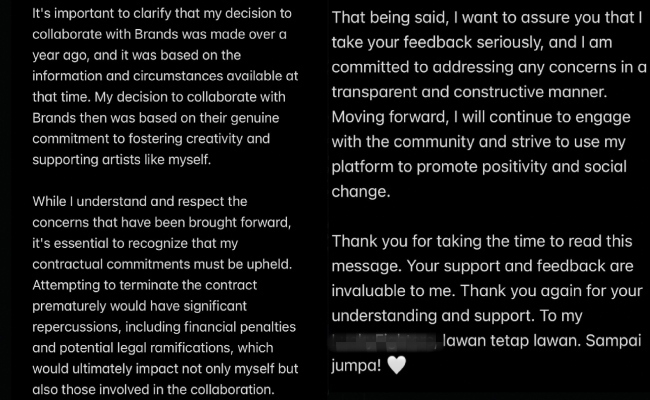
While breaching the contract could lead to legal complications, it still doesn’t make sense that these celebrities only recently began speaking about the genocide on the platforms that they have, moments after their followers began blocking their accounts.
Furthermore, they did not clarify whether it was stated in the contract that they were unable to speak or promote a ceasefire for Gaza, so why are they only now showing support?
To defend themselves from accusations of putting on a facade and engaging in performative activism, another celebrity released a statement saying that they were unable to show full support for Gaza after their account was shadowbanned

“For you to say I just posted about Palestine is wrong because I’ve already told my followers before that I’ve been shadowbanned for reposting a lot.
“I couldn’t even access my own Instagram account; my account just wouldn’t work after I posted a lot about Palestine. I only managed to log in and get access to my Instagram after two days,” wrote the celebrity.
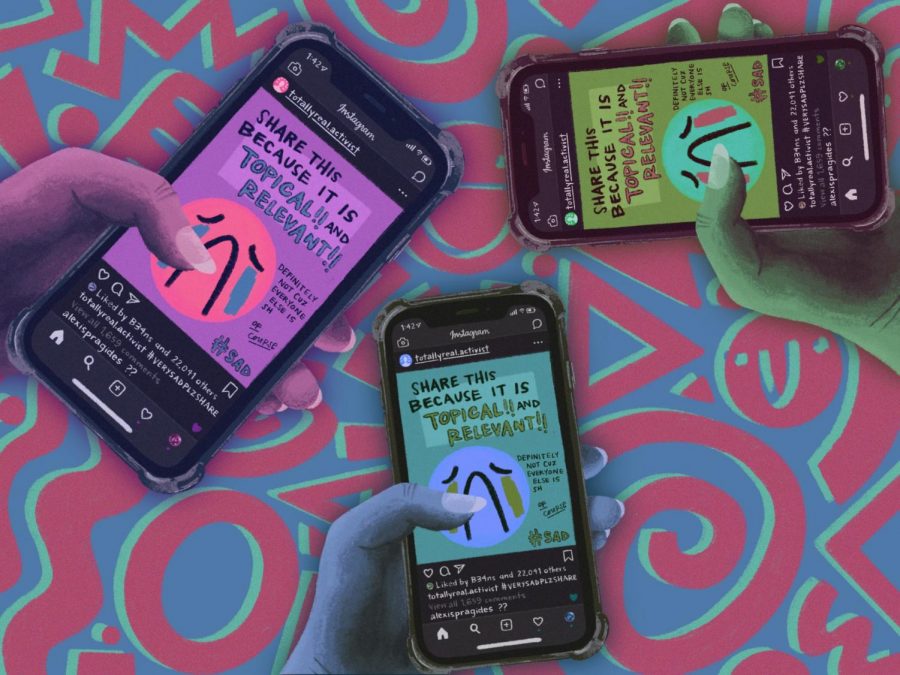
While it’s believable that their account was shadowbanned for speaking out about the genocide, how come smaller creators can find a way around censorship on social media?
After various creators’ content was censored from reaching the masses on social media for including the word ‘Palestine’, they famously used the watermelon emoji to represent the colours of the national flag.
Similarly, terms such as ‘genocide’ and ‘Israel’ were replaced with other words to allow these creators to raise awareness about what they stood for.
If these smaller creators could do it, the local celebrity’s claims might just be an excuse to avoid taking responsibility for not using their platform for good.
So, should we block them?
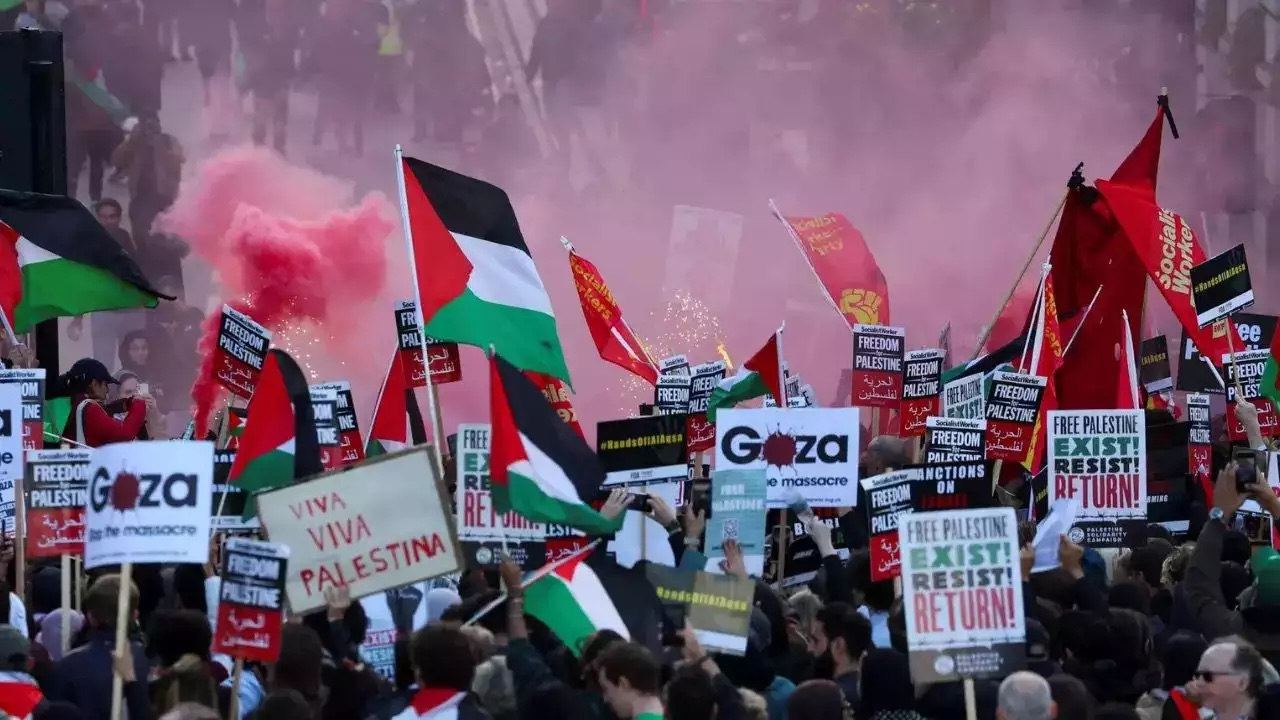
The purpose behind blocking these artists isn’t just to de-platform them on social media. It’s also a call for them to recognise the importance of using their platforms wisely, especially in taking a stance on anti-genocide movements.
As public figures with a large audience, they have the power to educate and influence the public, encouraging their followers to support the right causes.
In addition, if more celebrities boycott and refuse to collaborate with pro-Israel brands, this could put pressure on sponsors and clients to support the anti-genocide movement. This shift would help our creative industry move away from “pandering to the Zionists”.
By sharing information about what is going on in Palestine, these artists can help shape public perception and potentially change the future for those who are at risk of losing their loved ones, homes, and futures.
Furthermore, it is important to note that the attack on Palestine did not start last year; it has been ongoing for years, predating October 2023. It’s impossible that they haven’t heard the news or followed what’s going on in the country.
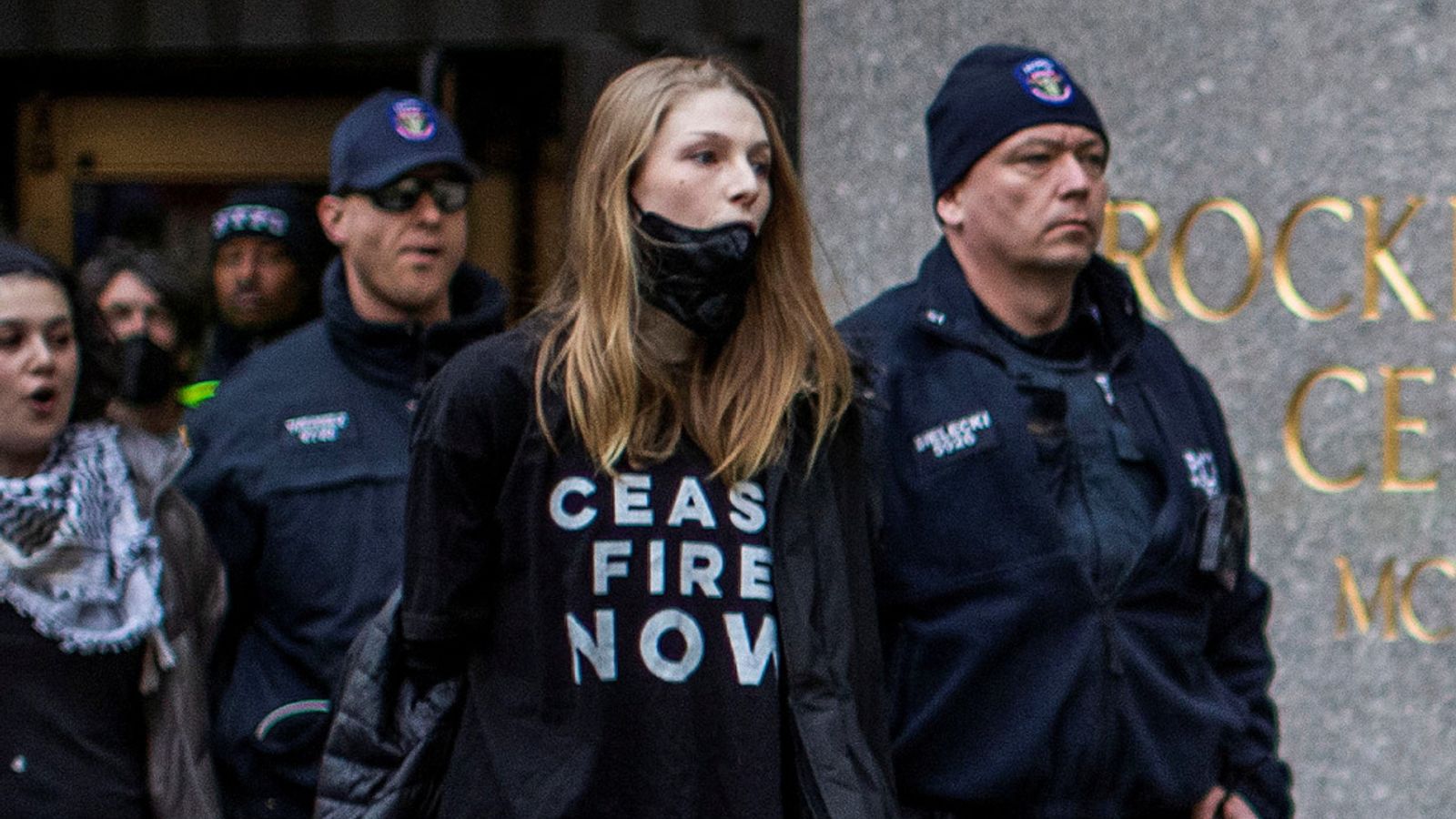
While we have raised concerns about these celebrities’ stances on the genocide, it is important to note that JUICE is committed to supporting our local talent so that our arts industry can thrive.
We understand that boycotting is based on personal beliefs, so whether or not you block them is entirely up to you.
However, when choosing a public figure to admire and love, keep in mind that no celebrity is perfect; you never know which ones are spineless or have questionable principles.
Most importantly, now is an important time to stay informed about the current situation in Gaza. We encourage you to follow celebrities and social media influencers who actively share updates and raise awareness about the genocide.
ICYMI: What is #Blockout2024?
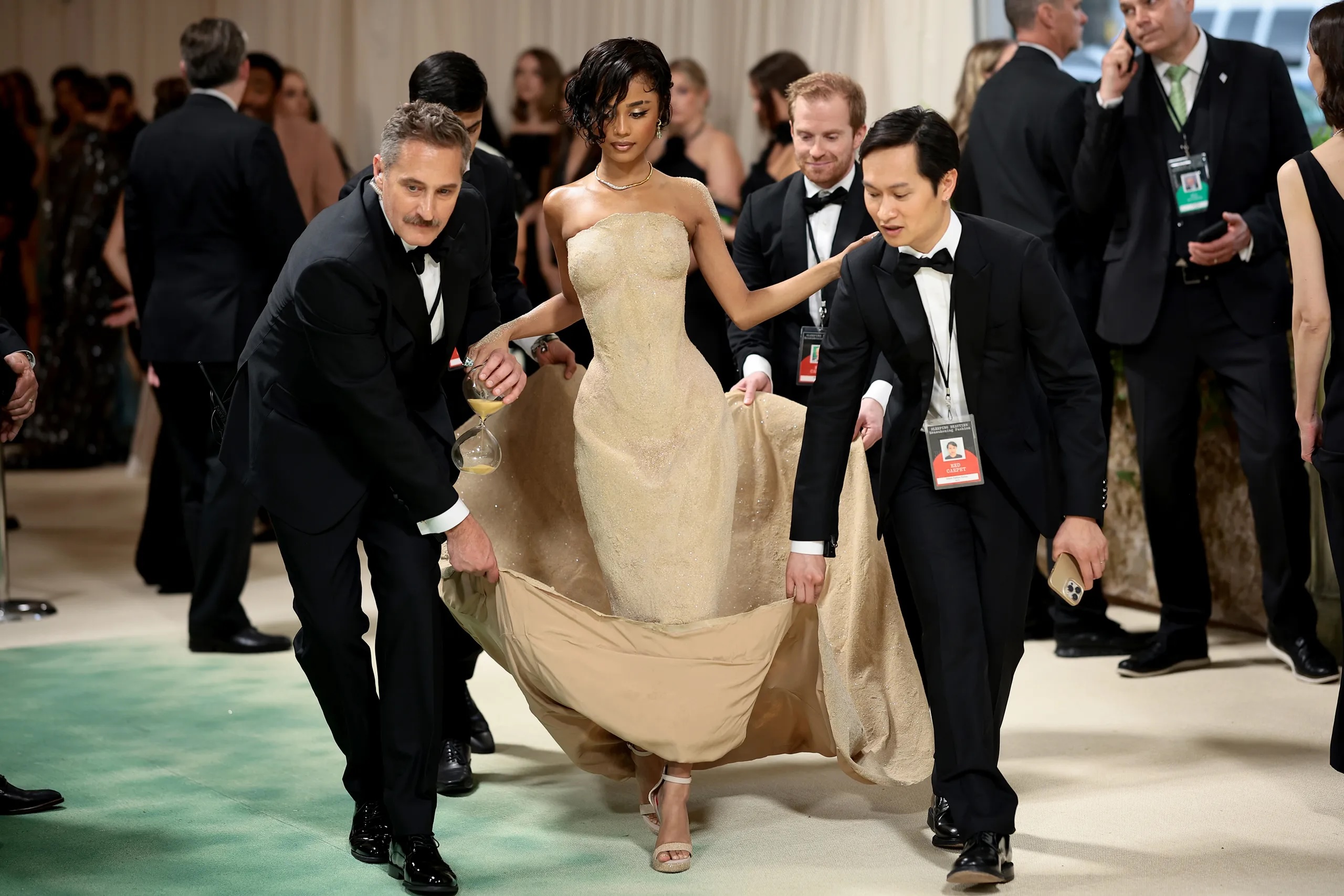
The #Blockout2024 movement first started on social media after A-list Hollywood celebrities attended the MET Gala while Israel invaded Rafah, a city in the southern Gaza strip considered to be the last refuge for 1.4 million Palestinians.
While innocent lives were lost, the Western media was mostly focused on the fashion event and ignored the ongoing genocide that is still happening in Palestine.
As a sign of protest, TikTok users created the #Blockout2024 movement to de-platform celebrities who endorsed businesses that supported the Gaza genocide.
Following this, celebrities who were blacklisted immediately saw a decrease in followers on their social media accounts, losing hundreds of thousands of fans in just a single day.

Seeing how this international movement has impacted Hollywood celebrities, Malaysians joined in, and the local boycott list was first posted on TikTok to raise awareness among the public.


 Get Audio+
Get Audio+ Hot FM
Hot FM Kool 101
Kool 101 Eight FM
Eight FM Fly FM
Fly FM Molek FM
Molek FM